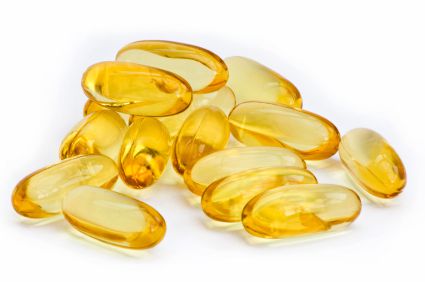When it comes to the debate of fish oil vs flax seed oil, there is more confusion and controversy that leaves observers worried about making the wrong choice.
Experts are in agreement about the vast benefits to health from omega 3 fatty acid supplements. Omega 3 fats have been shown to be helpful in boosting immune function, reversing heart disease, fighting aging related degenerative disease, helping improve fertility, improving mental health and promoting healthier skin.
So let’s look at the essential difference between plant and animal sources of Omega 3 before addressing the fish oil vs flax seed oil question directly.
Where can you get omega 3 fats?
Omega 3 is plentiful in wild plants and wild game. Plant sources like flax seed oil and linseed oil, fatty wild fish like salmon, herring, mackerel and sardines and in lesser amounts in walnuts, hemp seeds, green leafy vegetables and soya oil are all rich omega 3 sources.
Fish Oil Advantages
Fish sources of omega 3 have some advantages over plant sources like flax seed oil. Fish is a better source of long chain omega 3 fatty acids like DHA (docosahexaenoic acid) and EPA (eicosapentaneoic acid), both of which are necessary for healthy functioning and development. No plant source provides significant long-chain fatty acids.
DHA is important for heart health and specifically essentially in brain development of fetuses and newborn babies, making up 30% of the brain’s cortex and 15-20% of the eye’s retina.
Fish oil omega 3 fatty acids help to prevent prostate cancer, a benefit not available from plant sources of omega 3. Okinawan elders, who boast of the world’s lowest rates of cancer of the prostate, get omega 3 in abundance from the wild fish they consume.

Flax Seed Oil Benefits
An alternative for your omega 3 requirements is to take ample amounts of ground linseeds or flax seed oil in your diet. Plant sources, however, are a poorer source of long chain omega 3 fatty acids like DHA and EPA. Supplementary DHA derived from algae is also available as a commercial product, as Omega Zen-3.
Unfortunately, while natural fish is a good source of omega 3 fatty acids, it also increasingly contains pollutants and heavy metals like mercury.
In a landmark 2002 study on middle-class families in San Francisco Bay area who ate fish for health, it was found that those eating swordfish, sea bass, halibut and ahi tuna steaks had dangerous concentrations of mercury in their blood – that dropped when they stopped eating fish!
This is why pharmaceutical sources of fish oil are more attractive as health supplements, as these sources are purified and most contaminants are filtered out effectively.
The Safe Alternative
An option that lets you to benefits from these health supplements, without the risks, is to take fish oil capsules. 3 grams a day of fish provides 1 gram of D.H.A. and E.P.A., which is all you need.
Several brands use oil from fish caught in the cleanest and coldest waters, preferably those far from commercial shipping lines and industrialized countries where the highest risk of water contamination by wastes exists.

Making fish oil capsules even safer is the practice of molecular distillation, a process that removes any mercury or other heavy metals, dioxins, PCBs and other contaminants.
So instead of worrying about the flaxseed oil vs fish oil debate, why not consider the ‘safe alternative’ – pharmaceutical grade fish oil supplements?
How to Choose the Best Omega 3 Fish Oil?
Even though there are reams of information available about choosing the best fish oil formulation, this is by no way an easy or quick task.
When you consider how the choice of brand and kind of omega 3 supplements you take has a significant impact on the benefits you’ll enjoy from it, you’ll realize that even if it is difficult, it is an essential component of taking care of your health.
Even though omega-3 fatty acids are one of the most necessary nutrients that are needed in your diet, most people do not know which brands to choose from, especially since the market has become very competitive of late with a multitude of brands crowding the shelves on any health food store.
So if you want to find the best omega 3 fish oil, here are a few tips that will help you.

Check the EPA and DHA levels
The EPA and DHA contents of omega-3 fatty acids determine how good it is. The standard efficacy level across the world is set at two to three grams per day. However, most fish oil supplements available at grocery stores and drug stores offer only one gram of total omega-3 per dose.
This means that less EPA and DHA goes into your system than what really needs to. To make sure you are picking out the best omega 3 fish oil, check the quantity of EPA and DHA it offers. The higher the dose, more potent your omega-3 fatty acids are.
Is it Naturally Processed?
The only two sources of natural omega-3 fatty acids are fatty fish and breast milk. If you want to buy a fish oil supplement to get the adequate nutrients in your system, make sure the one of your choice is not winterized, fractionalized or ethyl-etherized as every minor modification causes the links in the fatty acid chain to weaken.
Don’t Let The Hype Distract You
Contrary to what you may think, the best omega 3 fish oils are the ones that do not have omegas 6 and 9. Omega-6 which is vegetable oil and omega-9 which is olive oil are both a lot cheaper to produce when compared to omega-3.
Many manufacturers bank on the ignorance of the common man, and try to pass off omegas 6 and 9 as the supplement you are looking for.
If you mistakenly pick out supplements with omega-6 or omega-9, you would actually be consuming a lot more grease than you should be. Check the label and the contents of your fish oil before you buy it. What is more advisable is that you read up sufficiently before heading out to buy any omega-3 supplement.
Check The Source
Flax seed oil also has a good quantity of omega-3. Though it is a simple fatty acid and has most of the benefits of fish oil, it lacks EPA and DHA. The best omega 3 fish oils will have the right count of EPA and DHA that help to decrease bad cholesterol and increase good cholesterol in your system.
Make sure you study our fish oil buyer’s guide here: click now.


